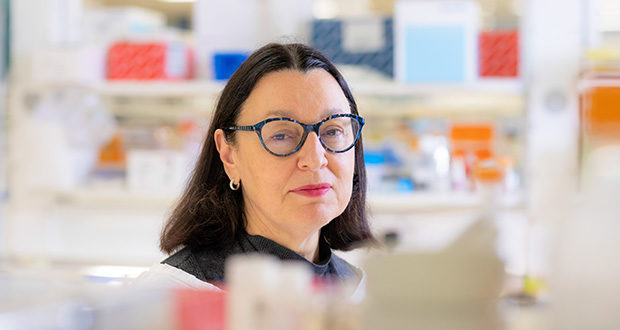Sydney neuroscientist Glenda Halliday has always been “fascinated” by how the brain works.
The University of Sydney professor, who is a world-leading expert in neurodegeneration, began her studies in the 80's and became captivated in how different chemicals in the brain can form diseases in later life.
“I thought that instead of doing a normal job after I finished university, I'd like to research and find out more about how you could change the brain and how diseases affect the brain,” Halliday told Campus Review.
“That really fascinated me.”
Last week, Halliday became the fourth woman in history to be named the 2022 NSW Scientist of the Year.
The annual prize, created in 2008, is awarded to researchers and scientists whose contributions benefit the health and well being people living across the state.
NSW Premier Dominic Perrotett recognised Halliday's "groundbreaking" work in uncovering underlying causes of non-Parkinson’s disease and frontotemporal dementia.
“It was an unexpected surprise, but it’s welcomed," Halliday said.
"It will definitely give me and the team of researchers a boost to continue our work."
Halliday describes her biggest breakthrough being her work on Parkinson's disease, where she identified that a bigger proportion of the brain can be impacted by the disease - a fact previously unknown to scientists.
She also founded the Sydney Brain Bank, a facility that collects and manages brains and spinal cord tissues to help research for disorders of the brain and mind.
For her work in frontotemporal dementia, Halliday said her experience has been focused in the pathology setting because “that's a disease that's still difficult to diagnose clinically”.
“I've done a lot of research I would never have imagined doing at all - it's been an interesting journey," she said.
According to Halliday, her most “surprising” work was looking at brain tissues after death, which she said isn’t something that is often done.
“We collect the brains at the time of death and we make sure that the disease is what people have been treated for - it is essential to develop new and accurate diagnostic criteria," she said.
“Often at death, the post-mortem will tell you that it wasn't the disease that we thought.”
Today, Halliday’s work on diagnostic criteria is used worldwide and helps patients on a daily basis.
“It's a good feeling to think that you can help people being diagnosed better and therefore manage better in the clinics and in their practicesm," she said.
“But it is a never ending work, we are always finding new research to improve it.
“We're currently trying to redevelop many of the criteria to make sure that people can be diagnosed and treated adequately.”
Halliday believes more work needs to be done around non-Alzheimer's degenerative diseases, as the total number of people affected is about the same as Alzheimer's disease in later life.
“These diseases affect people in the middle or early prime of their lives," she said.
"Because they affect people when they're younger, the effect is much bigger with a lot more disability and a lot more difficulties to cope.
“The families also have a lot more difficulties with coping with the neurological problem - it can be devastating.”
While she admits a lot of her research depends on funding, Halliday has currently been working on Parkinson's disease and its mechanisms.
She is trying to identify the different cellular molecular changes happening in the brain and hope to be able to create better therapies.
She believes young scientists should definitely get involved in research as it is a “worthwhile career”.
“There's always funding issues, but if you've got good ideas to develop and try, then it's a very worthwhile thing to do and try to actually make a difference to people's lives.”
Do you have an idea for a story?Email [email protected]
 Campus Review The latest in higher education news
Campus Review The latest in higher education news

